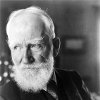“ Men have voluntarily thrown away life to acquire after death a renown which they could no longer enjoy. ”
Adam Smith, The Theory of Moral Sentiments (1759). copy citation
| Author | Adam Smith |
|---|---|
| Source | The Theory of Moral Sentiments |
| Topic | death life |
| Date | 1759 |
| Language | English |
| Reference | |
| Note | |
| Weblink | https://en.wikisource.org/wiki/The_Theory_of_Moral_Sentiments |
Context
“He anticipates the applause and admiration which in this case would be bestowed upon him, and he applauds and admires himself by sympathy with sentiments, which do not indeed actually take place, but which the ignorance of the public alone hinders from taking place, which he knows are the natural and ordinary effects of such conduct, which his imagination strongly connects with it, and which he has acquired a habit of conceiving as something that naturally and in propriety ought to follow from it. Men have voluntarily thrown away life to acquire after death a renown which they could no longer enjoy. Their imagination, in the meantime, anticipated that fame which was in future times to be bestowed upon them. Those applauses which they were never to hear rung in their ears; the thoughts of that admiration, whose effects they were never to feel, played about their hearts, banished from their breasts the strongest of all natural fears, and transported them to perform actions which seem almost beyond the reach of human nature.”
source



